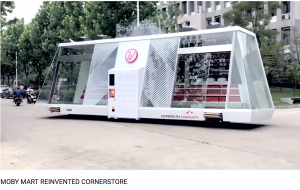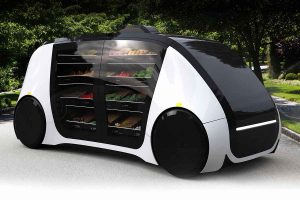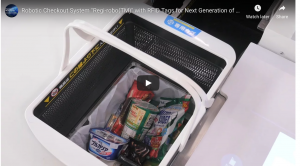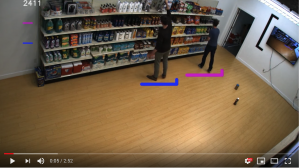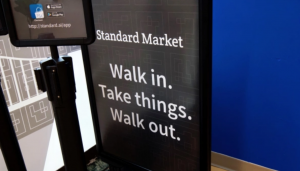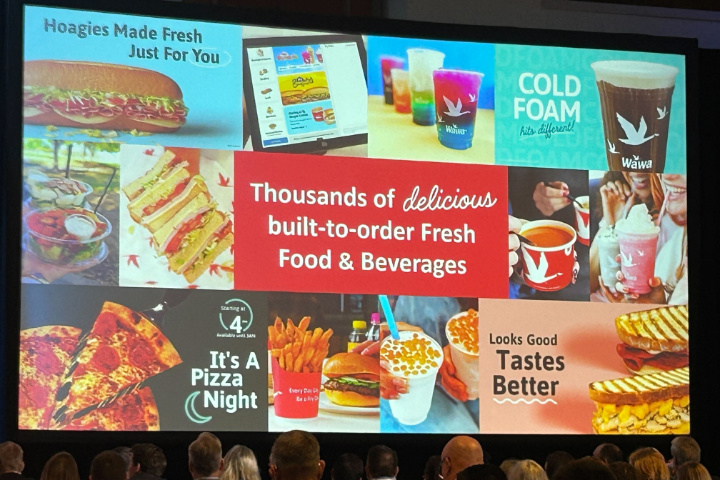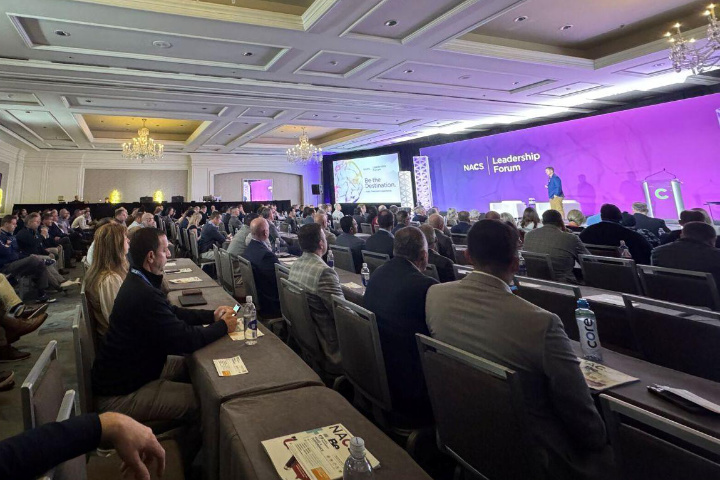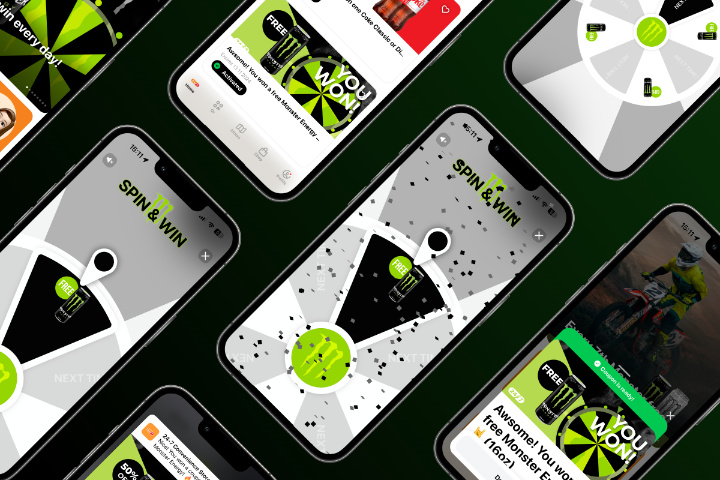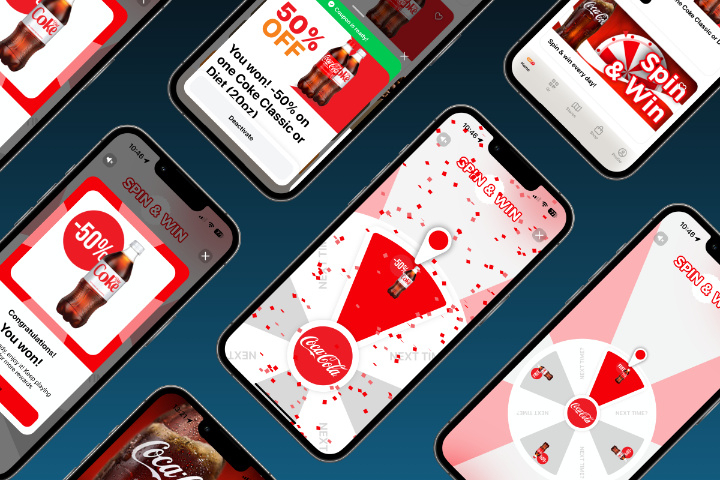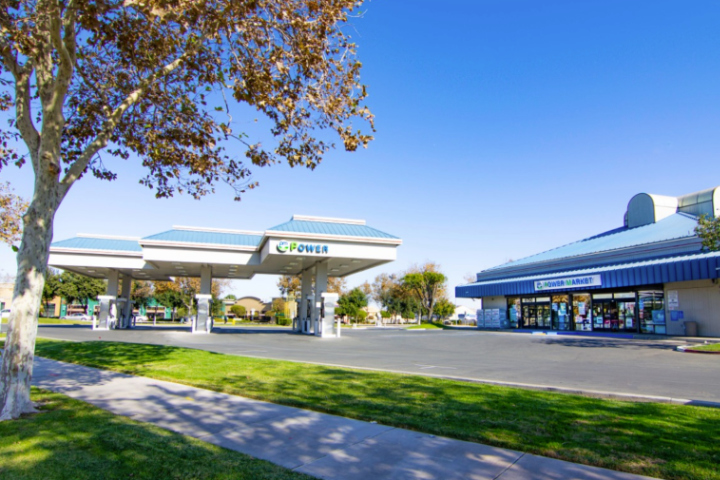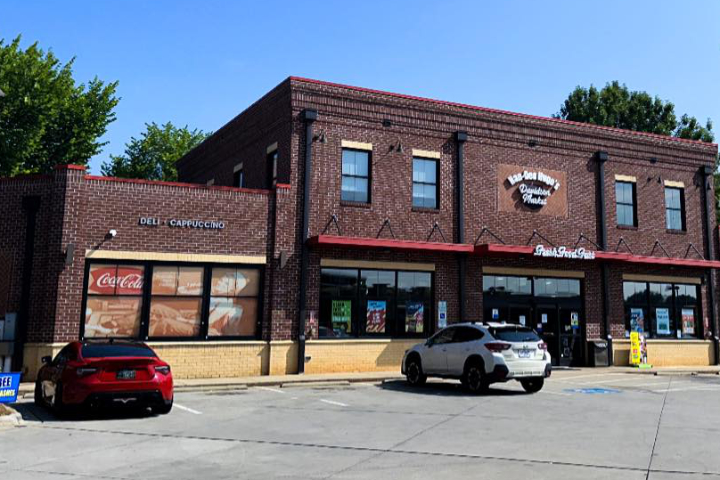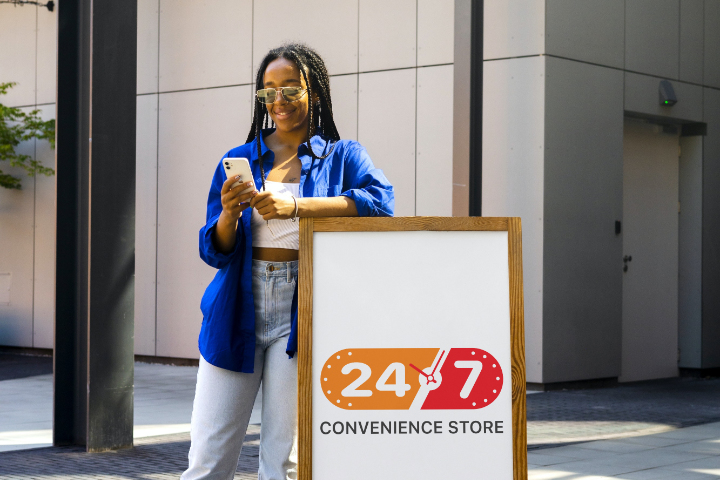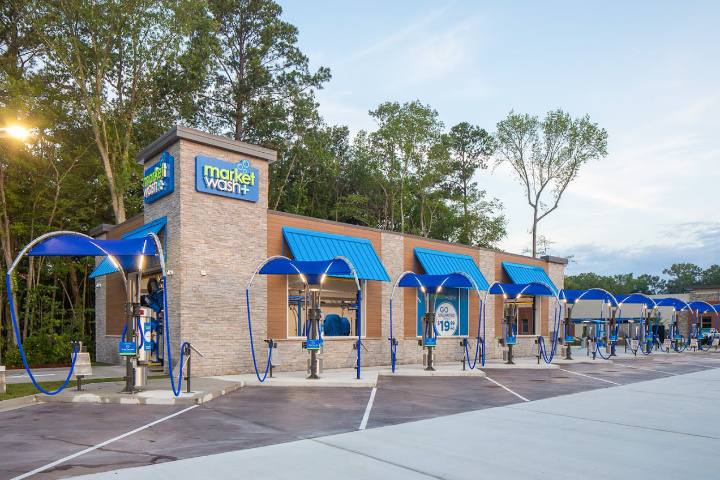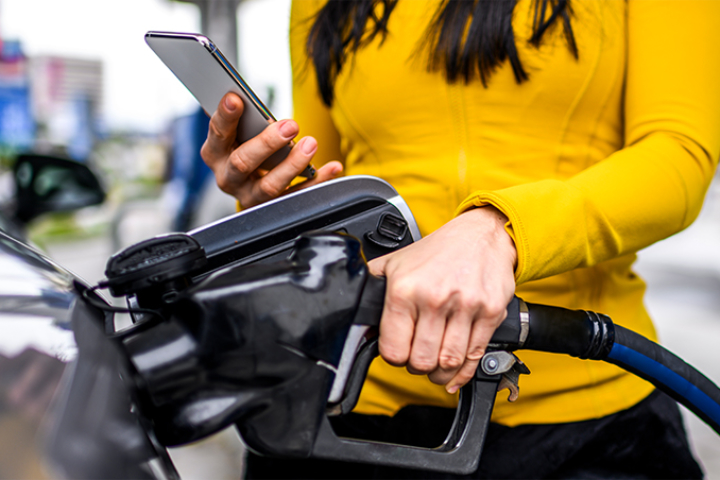This article first appeared on Global Convenience Store Focus.
Asia is home to seventeen megacities – more than any other continent on earth so when it comes to innovation in urban convenience retail, this region is experimenting like nowhere else on earth. We’ve previously discussed the emergence of staffless stores in the USA, China and Indonesia, so along with some exciting new stories from those countries, in this article, we also review some of the latest ideas from South Korea and Japan that are designed to save time for customers and reduce the need for staff in convenience stores.
We’ll start with the most startling.
Rather than ordering from your local store, now you can order the whole store – right to your front door.
Order-A-Store
Two remarkably similar concepts have emerged separately in Shanghai and California each claiming to be “first”. With both concepts, instead of you driving to the grocery store, the grocery store actually drives itself to you. Simply “order a store” from an app in the same way you’d order an Uber, anytime day or night, and the mobile store that arrives is nothing short of remarkable. A self-driving, staff-less, entirely self-service grocery store.
Best explained by the video below, the Shangai-based version is entitled the “Moby Mart project” and is the result of collaboration between a Swedish mobile organic cafe startup Wheelys, a tech company Himalafy and the China’s Hefei University of Technology. Beta trials of Moby Mart have been in operation for over six months, and this video shows exactly how mobile and accessible the units are. Most importantly, with six months of testing already completed and delivering “highly promising results”, these mobile convenience stores claim to have a higher turnover (and lower operational costs) than a traditional brick-and-mortar store the same size would generate.
First unveiled at CES 2018 (“the world’s gathering place …. for consumer electronics”), “Robomart” is the California-based company offering a similar highly innovative solution – but mainly focused on fresh food. Based on the dual insight that online grocery spending is set to grow more than ten times faster than offline spending, and that the eCommerce model for the grocery industry hasn’t yet been unable to solve its single biggest problem (that customers simply don’t trust anyone else to choose their fruit and vegetables), RoboMart decided to bring fresh fruit and vegetables to your front door! Beautifully sleek in design, the company’s model is to build the units as unbranded vehicles that large retailers can brand as they choose in order to test and trial in relevant markets at relatively low cost.
Both Moby Mart and Robomart boast twenty-four/seven availability of their stores – so they are more accessible than many of the latest digital stores such as Amazon Go which typically operates from 7 am to 9 pm. They face plenty of hurdles before becoming mainstream – such as the legal infrastructure and licensing to support driverless vehicles – but there are clearly some locations worldwide where these mobile units offer a cost-effective and convenient grocery shopping solution to time-poor customers.
Robomart – the world’s first driverless grocery store
Check-Out Robots in Japan
Self-service check-outs have been operational globally now for some years, however, the robotics development office of Panasonic in Japan believes that it’s the latest version of this technology could drive “a revolution in productivity”.
Using RFID tagging, this fully automated robot check-out bags and packs the produce ready for customers to leave quickly as soon as they’ve paid. Known as “Regi Robot“, the 2016 trials produced promising results including improved store traffic and an increase in customers choosing to use the self-service robot in the test store, particularly on repeat visits. Further enhancements since these initial trials include the ability for customers to place purchased products directly in their own bags from the shelves and leave. Again using RFID tags on products, this approach promises the ability for customers to simply walk-out of the store when they’ve chosen their products, allowing the exit scanners to simply scan the products taken (within the customer’s shopping bag) and process the payment.
Watch the Panasonic Register Robot
Hand-Pay
While facial recognition and the concept of “smile to pay’ has already been implemented by Alibaba in a variety of quick-service restaurants and convenience retailers in Asia, 7-Eleven is the company leading the convenience world in the use of hand-pay technology. Following the announcement of the unmanned X-store concept in Taiwan in January this year, their Korean parent company – retail giant Lotte – unveiled a robot named “Veny” which automatically takes payment when a customer places their hand on the scanner. It has been described as “the symbol of 7-Eleven’s digital revolution” and works by scanning the veins in the customer’s hand to identify them and process payment.
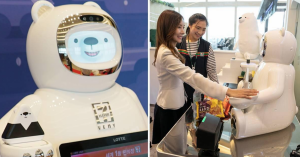
Staffless Stores
While not a roaming store, a fully-automated staff-less convenience concept has also been trialled in Shanghai by the French International Retailer Group Auchan SA. Originally called “Bingobox“, these kiosks are built-in shipping containers and stock just 500 products. They use QR code scanners to control entry and exit and offer both WeChat and Alipay payment options. Click here to see the full customer experience in action, which operates now under the brand name Auchan Minute. These new format kiosks offer an interesting option in places where a new store is needed (and space and technology permits).
Other disruptors however such as Standard Cognition have announced even more exciting ideas for existing stores that are increasingly concerned about competition from Amazon Go and their recent announcement to scale their store numbers up to about 3,000 in the US in the next few years. While headquartered in Silicon Valley, this company is running pilots overseas in countries with even greater need for this solution such as Japan which is suffering from a chronic shortage of staff across all sectors with 1.2 million jobs left un-filled in 2017, proving a major barrier to growth!
Standard Cognition in-store cameras capture every move in the store.
This camera-based solution includes the following functions:
“person detection, entity tracking, item detection, item classification, ownership resolution, action analysis, and shopper inventory analysis, all working together to visualize which person has what item in real-time.”
This solution offers extensive benefits:
- It completely eliminates waiting to check out as the store cameras track every possible interaction with products – regardless of how complex.
- It can be installed overnight in any store.
- It is relatively inexpensive compared to Amazon Go – whose stores they have been estimated would cost between $3 to $5 million dollars to replicate, as they typically install 3-5,000 cameras per store. Standard Cognition uses just 25 – 30 cameras.
- Given increasing levels of privacy concerns, a camera solution that ONLY tracks products is a much-less invasive solution than facial or even hand recognition.
- As an independent third party, the Standard Cognition solution is available to any brand that fits their partner criteria, and they are actively inviting potential partners to run trials worldwide.
- With such an EASY shopping experience, customers are more likely to spend more, and for store operators, losses from impatient customers are also minimised.
While still at the very early stages of their pilot/trials, companies like this using artificial intelligence to build such powerful propositions as “Walk in, take things, walk out’ will inevitably win the hearts and minds of customers and store operators alike.
The Next Retail Revolution
While consumers continue to tolerate whatever process their local convenience store requires, there is equally a clear understanding in the industry that one of the greatest challenges we face currently is to effectively remove every possible point of friction. So whatever solutions emerge, once they are adopted at scale, they will truly drive “the next retail revolution”.
Liquid Barcodes is a leading global loyalty technology company specialising in the convenience store and foodservice industries. Our proprietary cloud-based technology platform allow retailers to create and manage their digital marketing campaigns with a proprietary process we call the “customer connection cycle’ to engage, promote and reward customers activities in real-time across digital and media channels.
How we do it:
We have developed the most advanced loyalty and digital marketing technology platform specifically for convenience store and foodservice retailers globally.
Retailers use our self-service dashboard to create and manage loyalty driven marketing campaigns that increase purchases with their existing customers, as well as effectively target and acquire new customers through partners or paid media channels.
One core component of live loyalty is gamification. We have gamified branding, loyalty and promotions. We believe this approach is essential in order to get customers’ attention and ultimately truly engage them with repeatable actions thereby winning their loyalty.
Check out some of our exciting/proven results here:
About Me:
Chief Content Officer, Liquid Barcodes and Independent Loyalty Consultant.
With over twenty-five years marketing experience, I specialise in loyalty marketing consulting, managing consumer loyalty propositions, strategy and operations. In addition to working with Liquid Barcodes, my clients have included Telefonica O2, Three Mobile, Electric Ireland, Allied Irish Bank and The Entertainer, as well as Avios – the global points currency for some of the world’s top airlines. I am also a judge for the Loyalty Magazine Awards.
—————————————————————————————–


